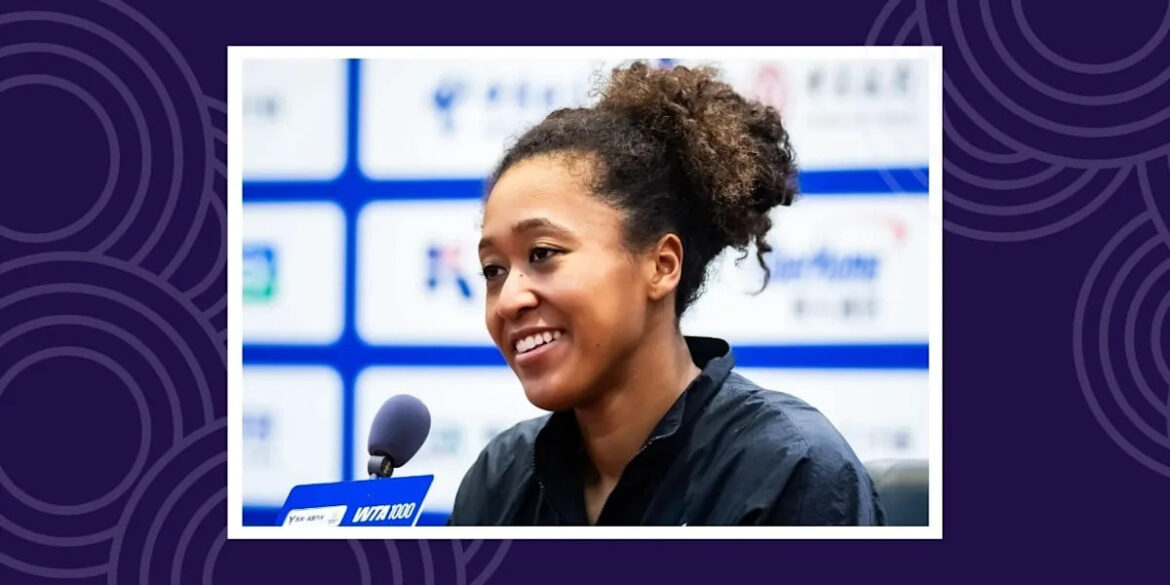When Naomi Osaka stepped away from tennis in 2022, few could have imagined that her time off the court would become one of her most transformative chapters yet. In a recent Tennis Insider Club podcast, the four-time Grand Slam champion shared that it was during her pregnancy and postpartum recovery that she finally saw herself in a new light, not as a player defined by trophies, but as a woman learning to value herself beyond what she achieves.
“I would lose a match and then feel like my life is meaningless … like the only value I had was winning,” Osaka said. “So I feel like I needed to take a break to discover what I’m capable of, or what I can give to the world.”
It’s a striking admission from an athlete known for her quiet intensity. But it’s also one that resonates deeply with many women who’ve experienced the identity shift that comes with motherhood. That disorienting but illuminating recalibration of self that happens when your worth can no longer be measured by performance alone.
“I didn’t see my worth outside of tennis” — When identity is tied to achievement
Before pregnancy, Osaka admits she struggled to separate her sense of self from her results. And in that way, she mirrors what so many new moms quietly face: the moment when external success pauses, and self-worth is suddenly untethered from productivity.
Dr. Sarah Allen, a perinatal psychologist who writes extensively about identity shifts in early motherhood, notes that many women feel a loss of self when they become mothers — not because they’ve changed for the worse, but because their old reference points of success suddenly no longer apply.
“When so much of your day revolves around caring for someone else,” she explains in her blog Reclaiming Your Sense of Identity When You’re a Mom, “it can be hard to remember who you are outside of being a parent.”¹
That sense of disorientation, Allen adds, can be especially pronounced for women used to achieving through measurable results, a reminder that rediscovery after birth is about renewal. That’s exactly what Osaka describes, a humbling process of rediscovering purpose when the scoreboard, deadlines, and noise all fall away.
Related: How new mom Naomi Osaka is serving up change
The power of pause: What pregnancy taught her about capacity
“I’ve always taken little breaks in my career,” Osaka said in the podcast, “but my pregnancy break was the one that made me realize a lot of things about myself.”
Her words hint at something many mothers discover too: that pregnancy is a profound reset. Amid sleepless nights, recovery, and bonding with her daughter Shai, Osaka found a new kind of strength, one rooted in stillness rather than striving.
For many moms, that recalibration feels familiar. Rest can be radical. And in that rest, a new understanding often emerges, that capacity is about how deeply you can be, beyond just what you can do.
Reclaiming joy and purpose (on and off the court)
When Osaka returned to competition in January 2024, she was chasing the rediscovery joy. By 2025, she had climbed back into the Top 20, with standout runs to the Montreal final and US Open semifinals. But her year-end ranking (No. 16 in the world) felt less like a comeback and more like proof that fulfillment and ambition can coexist.
With a new coach and renewed energy, Osaka now embodies something powerful for working moms everywhere: the idea that ambition doesn’t have to equal burnout. You can return stronger, yes — but also softer, more self-aware, and in tune with what actually matters.
Related: Naomi Osaka says she’s had ‘so many doubts’ about whether she’s a ‘good mom
Worth beyond performance
Whether your “court” is a boardroom, classroom, or kitchen table, the truth holds: you are more than what you accomplish. There’s grace in pausing. There’s power in rediscovery. And sometimes, stepping away is exactly how we find our way back, not to who we were, but to who we were meant to become.
Sources:


AloJapan.com